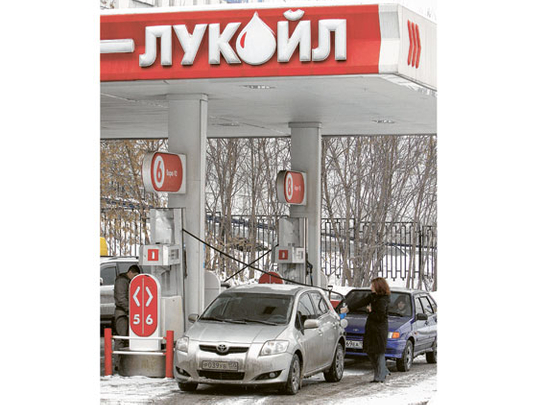
Moscow: Lukoil, Russia's second-largest oil firm, will suffer a decline in crude oil production this year of 3.5-4 per cent, stabilising in 2012, before growth resumes thereafter, CEO Vagit Alekperov told Reuters.
Lukoil is on the lookout for upstream acquisitions outside Russia to strengthen its reserve base, and sees chances for Russian oil companies to work in Libya after the overthrow of long-time leader Muammar Gaddafi, he said in an interview.
"Our office has worked in Libya all along, and if a new government declares any tenders, we would of course be interested in taking part," Alekperov said.
Lukoil secured a foothold in Iraq despite Russian opposition to the US-led military intervention to oust Saddam Hussain.
Lukoil, which announced a 67 per cent rise in second-quarter earnings on Wednesday to $3.25 billion (Dh11.93 billion), has no plans to buy new refining assets over the next 10 years and will instead invest to upgrade its existing downstream portfolio.
"There will be a stabilisation of production in 2012, and growth will start by 2013," Alekperov said.
Lukoil's output fell last year by 1 per cent to 1.92 million barrels per day. The company produces around 5 per cent of its oil outside the country.
Lukoil is ramping up work at the West Qurna-2 field in Iraq, and will participate in further tenders in Iraq in 2012, Alekperov said.
Lukoil's strong balance sheet — with long-term debts at a relatively low $9 billion at June 30 and operating cash flow of $8.3 billion in the first half of the year — means it can finance acquisitions without tapping the capital markets.
According to its last quarterly accounts in May, Lukoil had set aside $1.8 billion to finance acquisitions. The company will invest $16 billion over the next 10 years in modernising its refineries.
"We are interested in upstream acquisitions. Look at the opportunities," Alek-perov said. "The company today controls cash flows that allow it to do substantial deals."












